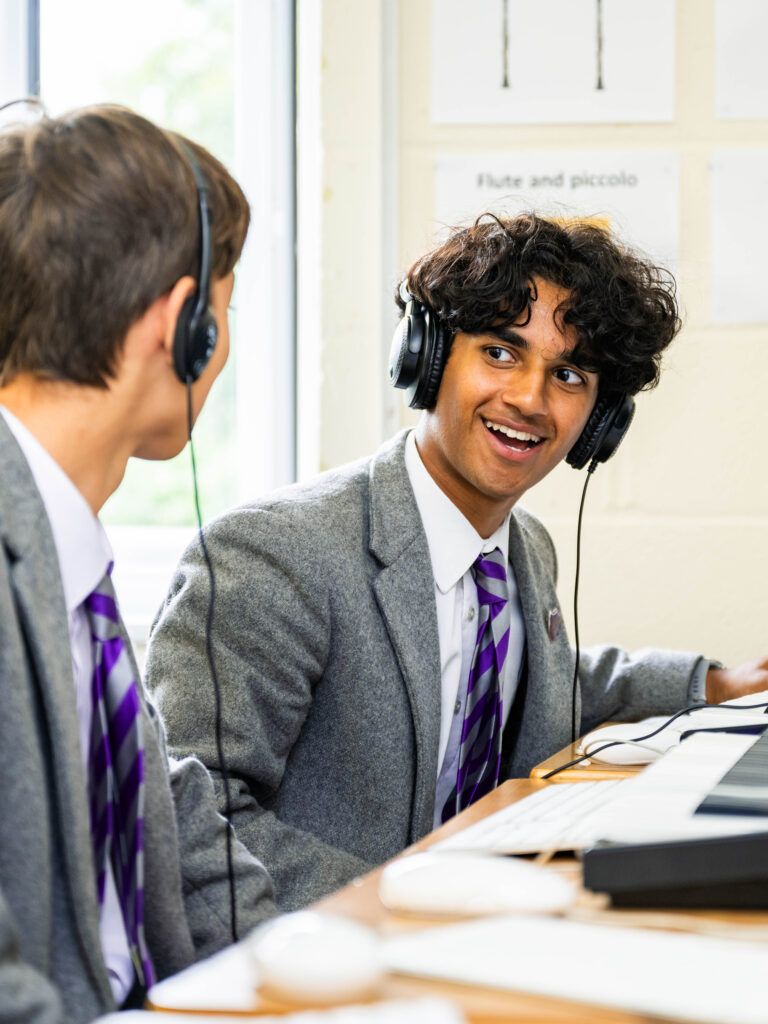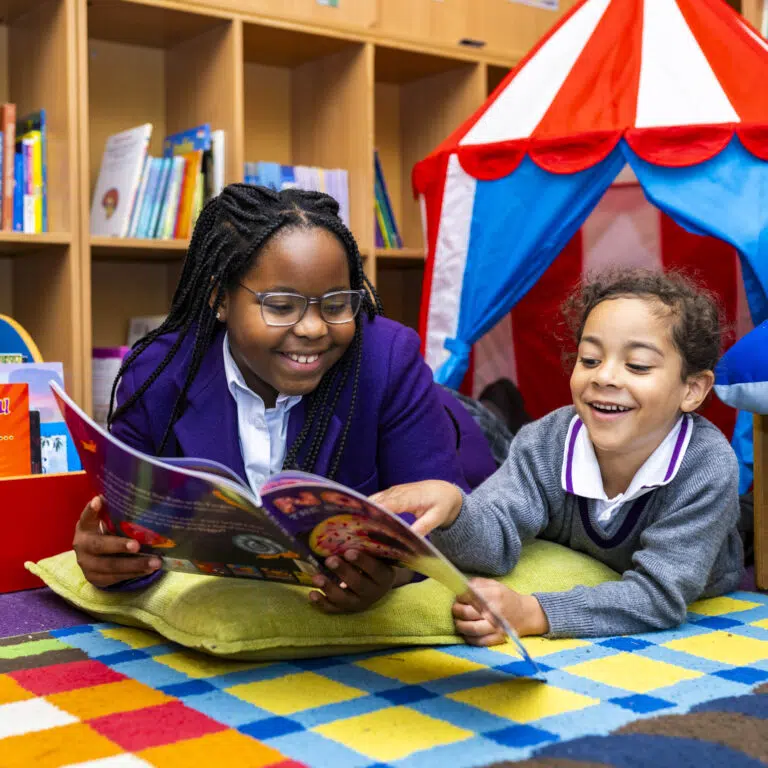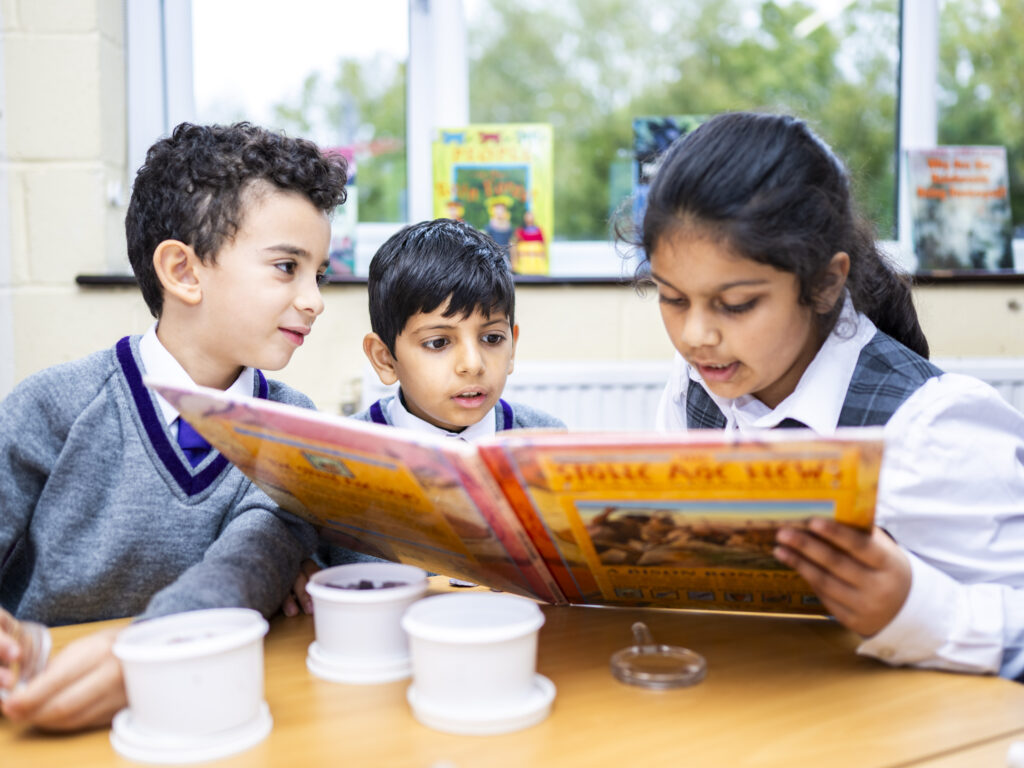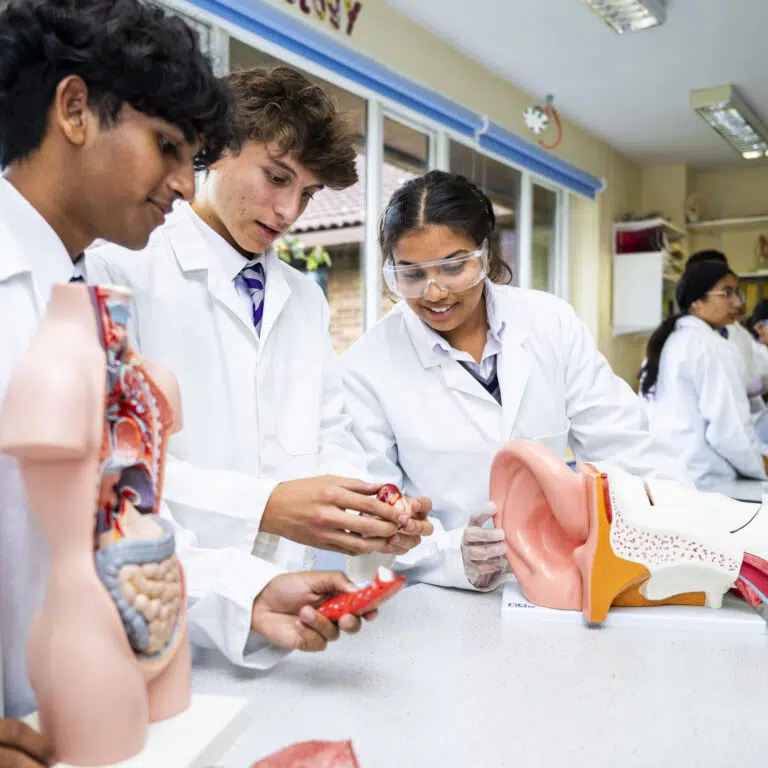Education Terms Debunked
As you navigate your child’s education you will likely encounter complex language, specialist terms, and one too many acronyms! As parents, you want to be fully informed in order to best support your child, but this can be daunting when you are unfamiliar with the language used in letters home, on our website, and via our newsletters or school reports. At Webber, we have compiled this Education Terms Debunked Dictionary to demystify some commonly used terms and make the educational journey more accessible.
Nursery
B
Blending: This is a skill your child learns in their phonics lessons to help them learn how to read and write. It involves taking small sounds and blending them together to form a word. For example, the sounds f-l-a-p, blended together, reads “flap.”
E
EYFS (Early Years Foundation Stage): The EYFS is a statutory set of guidelines for schools and childcare providers, outlining how children aged 0-5 should learn and be cared for. Schools use it to refer to children in their care from nursery to reception.
Enquiry-based Learning: When your child learns by asking questions and exploring their curiosity. It’s like when they wonder about something and then go on a little quest to find out more. This way, they become really good at finding answers and understanding the world.
F
Fine Motor Skills: These are the little movements your child makes with their hands and fingers. It’s like when they learn to hold a pencil, use scissors, or do up buttons. These skills help them do things like writing, drawing, and getting dressed.
G
GLD (Good Level of Development): When a child has reached the expected level of development in the core strands of the Early Years curriculum.
Gross Motor Skills: These are the big movements your child makes with their arms, legs, and body. It’s like running, jumping, or riding a bike.
P
Phonics: A method of teaching children how to read and write by focusing on the sounds and letters that form words. By knowing the sounds of letters, children can blend these sounds to form and decode words.
S
Segmenting – This is a skill your child learns in their phonics lessons to help them learn how to read and write.It involves breaking a word up into its individual sounds. For example, the word ‘flap’ is segmented into sounds f-l-a-p.
Primary
K
Key Stage one – age 5-7 (Years 1 and 2).
Key Stage two – age 7-11(Years 3,4, 5 and 6);
N
Non-Verbal Reasoning: Solving problems and puzzles based on images, diagrams, and shapes, rather than words. This assesses children’s ability to analyse visual information and recognize patterns.
O
Oracy: The ability to express yourself clearly, fluently, and eloquently. It is about how your child is able to speak and communicate effectively with others.
V
Verbal Reasoning: Solving problems and puzzles based on images, diagrams, and shapes, rather than words. This assesses children’s ability to analyze visual information and recognize patterns.
Secondary
A
Access Arrangements: Special arrangements such as extra time, rest breaks, or use of word processors for examination purposes.
G
GCSE Grades:
9 = Awarded to the top 4.9% of students nationally
8 = A* grade
7 = A grade
6 = B grade
5 = High C grade
4 = Low C grade
3 = D grade
2 = E grade
1 = F or G grade
U = U remains the same
I
iGCSE (International General Certificate of Secondary Education): A GCSE equivalent qualification that can be taken by students outside of the UK (as well as in the UK). Usually entirely examination-based.
K
Key Stage three – age 11-14 (Years 7, 8 and 9).
Key Stage four – age 14-16 (Years 10 and 11).
Key Stage five – age 16-18 (Sixth Form).
M
Mocks: Practice examinations that are sat during Year 11 in preparation for GCSE examinations.
S
Syllabus: A document that outlines what pupils will be learning. It lists the topics, books, and activities they will cover.
General
A
Age-Related Expectation: The level of attainment expected of a child relative to their age.
Attainment: A student’s level of achievement or success in their learning. This can be measured through tests, exams, teacher assessments, or coursework.
C
Character Education: Teaching children positive character traits so that they can become the best versions of themselves and develop into responsible, kind, and resilient individuals.
Cross-Curricular: When teachers draw links and make connections between different subjects or topics to help children see how they are related. For example, when a maths lesson involves reading a story or when a science project includes drawing pictures.
E
EHCP (Educational Health Care Plan) – An education, health, and care plan is a document that states what support a child or young person who has special educational needs should receive.
Extra-curriculum: The activities and learning experiences that happen outside of traditional classroom lessons. These activities can include things like sports, clubs, and projects that help children develop skills and interests beyond their academic subjects.
I
ISI (Independent Schools Inspectorate): The organisation responsible for inspecting independent schools in the UK to monitor if standards are being met.
ISA (Independent Schools Association): An association that represents the headteachers of the UK’s best independent schools.
P
Pastoral Care: The support schools provide to ensure the physical, social, and emotional well-being of its pupils. Examples of this include counselling services, bullying prevention, mentoring, and guidance.
Pedagogy: The methods and techniques teachers use to help children learn effectively. It is how teachers teach.
PSHCEE: Personal, Social, Health, Citizenship and Economic Education.
PTC: Parent Teacher Consultation
Pupil Voice: When pupils contribute their opinions on school life and are listened to by adults in the school. They have an active role in making decisions and implementing changes.
S
SEND – Special Educational Needs and Disabilities
SENCo (Special Educational Needs Coordinator): An experienced teacher who is responsible for overseeing how the school delivers support to pupils with special educational needs and disabilities. They are a key point of contact for colleagues and parents and are also involved in the identification of children with special educational needs.
SLT (Senior Leadership Team): The senior leadership team is responsible for running the school. This typically consists of the Headteacher, Head of Phase of Junior School and Nursery, Pastoral and Academic Heads, and SENCo.
STEAM – Science, Technology, Engineering, Arts, and Mathematics
W
Wrap-Around Care: The additional childcare services that the school provides before or after normal school hours. This typically includes a breakfast club before school or after-school activities.





